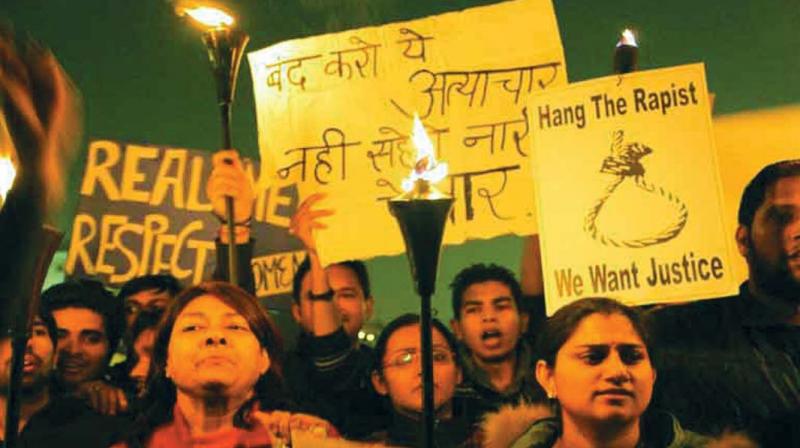By invitation: Capital order! They deserve it

In 1947, when India became an independent country we adopted the Indian Penal Code or the IPC. At the time, under section 302, the preferred sentence for murder was the death penalty and alternatively, life imprisonment.
Later, under pressure from human rights activists, the section was amended to make maximum life imprisonment the first choice and death penalty only to be given in certain exceptional cases. Further restrictions were placed on the basis of various judgments that suggested death penalty be given not only in exceptional cases but also depending on the cruelty and brutality of the crime. So death sentence has become an exceptional rule to section 310 of the IPC. As a result death sentences were very rarely given by the courts.
Several human rights activists continued campaigning, however, despite the provisions that made the death penalty an exceptional ruling. They are fighting now for its total abolitition and argue that as God gave humans life, no individual has the right to take it away.
I don't agree with this point of view. What about the victim and his/her right to life? Did the 2012 Delhi rape victim not have a life? Who gave these three men the right to take it away? There are still naysayers, who insist that the three men should have been a reformatory sentence and that these convicts would have managed to reform their lives after serving their sentences in jail. But what about the victim’s family and who’s fighting for her rights as a human?
Doing away with the death sentence in India will make room for heinous, unspeakable crimes like that one that took the 23-year-old’s life to multiply. There will be more unfortunate incidents because there is far less fear of a harsh punishment. Also, if the perpetrator gets a life sentence, it is possible for him to get a remittance and come out of jail!
This is why I am against the total abolition of the death sentence. You can argue the state has no right to take away a life, but doesn’t the victim's family deserve justice?
Let me give you an example. There was a certain case in Uttar Pradesh, in which the trial court handed down the death sentence, which was later changed to life imprisonment by the Uttar Pradesh High Court. I was a member on that bench. I remember I wrote in my judgment that this was not correct and the brutal manner in which the murder was committed, coupled with the conduct of the victim, made it a rarest of rare cases and that the accused deserved the death sentence. This was in 2004.
I am firmly of the view that abolition of the death sentence will create unimaginable chaos in the criminal administration system of the country. As for a certain case being under the spotlight due to the media, let me make it clear that we judges also get carried away with issues that may not have anything to do with the case at hand.
Judges are also concerned about religious beliefs and social popularity. We judges, after all, are also human beings. But according to me we should try a case on the basis of the oath we have taken to implement the law made by Parliament. Normally judgments in murder trials take at least 12 to 15 years to be delivered.
The 2012 Delhi gangrape and murder case is exceptional in that it took only four years to bring the perpetrators to justice. It is my belief that cases where the death row is a possibility should be expedited to ensure the accused does not stay in jail for too long and justice is meted out as soon as possible. Coming to the juvenile defendant in the case, I feel that that our Juvenile Act is archaic. In today's modern world children become worldly wise by the age of 15 or 16. I believe that it is a good thing that the government has amended the Juvenile Justice Act and brought down the legal age to 16 from the present 18. I also firmly believe that the death sentence should be handed down to the perpetrators of exceptional crimes, especially if they are against women.
New wave of sympathy for Bilkis Bano
The death sentence ruling in the 2012 Delhi rape case has revived a fresh storm of criticism against the 2002 Bilkis Bano gangrape verdict. 19-year-old Bano was gangraped at the height of the Gujarat riots in 2002 and 14 of her family members, including her two-year-old daughter, were killed. The CBI, which was heading the investigation, had asked for a death penalty for three of the 19 men convicted. The Mumbai High Court sentenced them to life imprisonment in January 2008.

